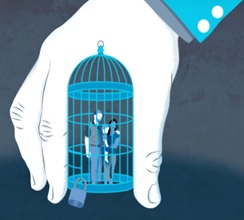- Political imprisonment is a key tool for limiting dissent – For every political prisoner behind bars, many more government opponents face subtler constraints amounting to “civil death.”

Feb. 2 (DPnet).– This report explores the use of repressive measures to prevent opponents from engaging in society and political imprisonment as part of Freedom House's efforts to assist in the release of political prisoners and resist the imprisonment of activists in six different countries that have seen a reversal of democratic progress in the last 20 years.
It is a shame that it is limited to Tunisia, Turkey, Thailand, Tanzania, Venezuela, and Nicaragua, ignoring China, Cuba, and North Korea, three countries where repression is usually even more cruel and State control is more totalitarian. However, this report is significant because it highlights the deterioration of the situation in the six countries studied.
According to Freedom House, in addition to imprisoning its opponents, authoritarian governments also use asset seizures, physical monitoring, travel restrictions, and blacklisting.
The case studies of the six countries highlight several important conclusions, one of which is the crucial role played by a compliant judiciary, which can severely restrict victims' access to justice and accountability while simultaneously acting as an enabler of political imprisonment.
This report also provides recommendations for democratic governments, donors, and civil society to support political prisoners and address the systemic conditions that enable autocrats to deploy repressive tactics.
Our Participatory Democracy Cultural initiative applauds and supports Freedom House's efforts to promote democracy and defend human rights.
Comments powered by CComment